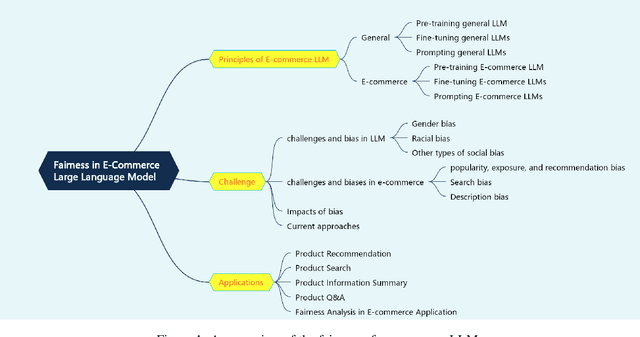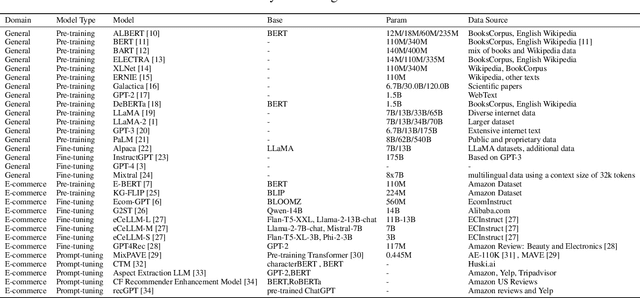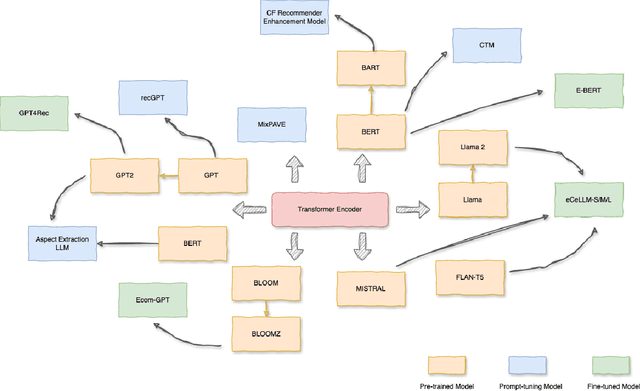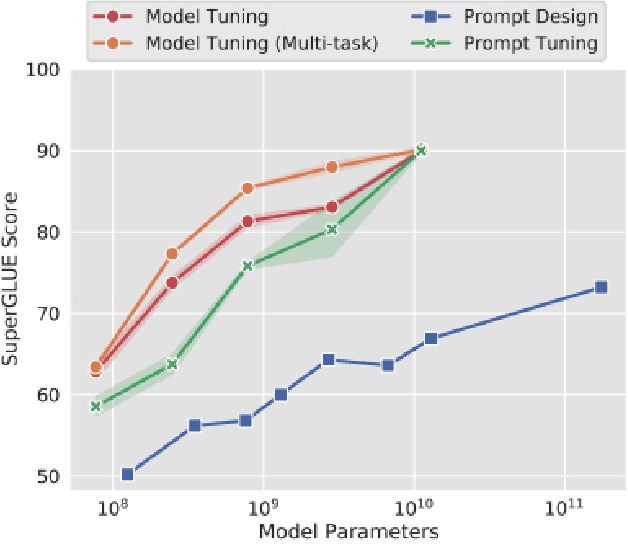Qingyang Ren
A survey on fairness of large language models in e-commerce: progress, application, and challenge
May 15, 2024



Abstract:This survey explores the fairness of large language models (LLMs) in e-commerce, examining their progress, applications, and the challenges they face. LLMs have become pivotal in the e-commerce domain, offering innovative solutions and enhancing customer experiences. This work presents a comprehensive survey on the applications and challenges of LLMs in e-commerce. The paper begins by introducing the key principles underlying the use of LLMs in e-commerce, detailing the processes of pretraining, fine-tuning, and prompting that tailor these models to specific needs. It then explores the varied applications of LLMs in e-commerce, including product reviews, where they synthesize and analyze customer feedback; product recommendations, where they leverage consumer data to suggest relevant items; product information translation, enhancing global accessibility; and product question and answer sections, where they automate customer support. The paper critically addresses the fairness challenges in e-commerce, highlighting how biases in training data and algorithms can lead to unfair outcomes, such as reinforcing stereotypes or discriminating against certain groups. These issues not only undermine consumer trust, but also raise ethical and legal concerns. Finally, the work outlines future research directions, emphasizing the need for more equitable and transparent LLMs in e-commerce. It advocates for ongoing efforts to mitigate biases and improve the fairness of these systems, ensuring they serve diverse global markets effectively and ethically. Through this comprehensive analysis, the survey provides a holistic view of the current landscape of LLMs in e-commerce, offering insights into their potential and limitations, and guiding future endeavors in creating fairer and more inclusive e-commerce environments.
Off-Policy Evaluation for Large Action Spaces via Conjunct Effect Modeling
May 14, 2023



Abstract:We study off-policy evaluation (OPE) of contextual bandit policies for large discrete action spaces where conventional importance-weighting approaches suffer from excessive variance. To circumvent this variance issue, we propose a new estimator, called OffCEM, that is based on the conjunct effect model (CEM), a novel decomposition of the causal effect into a cluster effect and a residual effect. OffCEM applies importance weighting only to action clusters and addresses the residual causal effect through model-based reward estimation. We show that the proposed estimator is unbiased under a new condition, called local correctness, which only requires that the residual-effect model preserves the relative expected reward differences of the actions within each cluster. To best leverage the CEM and local correctness, we also propose a new two-step procedure for performing model-based estimation that minimizes bias in the first step and variance in the second step. We find that the resulting OffCEM estimator substantially improves bias and variance compared to a range of conventional estimators. Experiments demonstrate that OffCEM provides substantial improvements in OPE especially in the presence of many actions.
 Add to Chrome
Add to Chrome Add to Firefox
Add to Firefox Add to Edge
Add to Edge